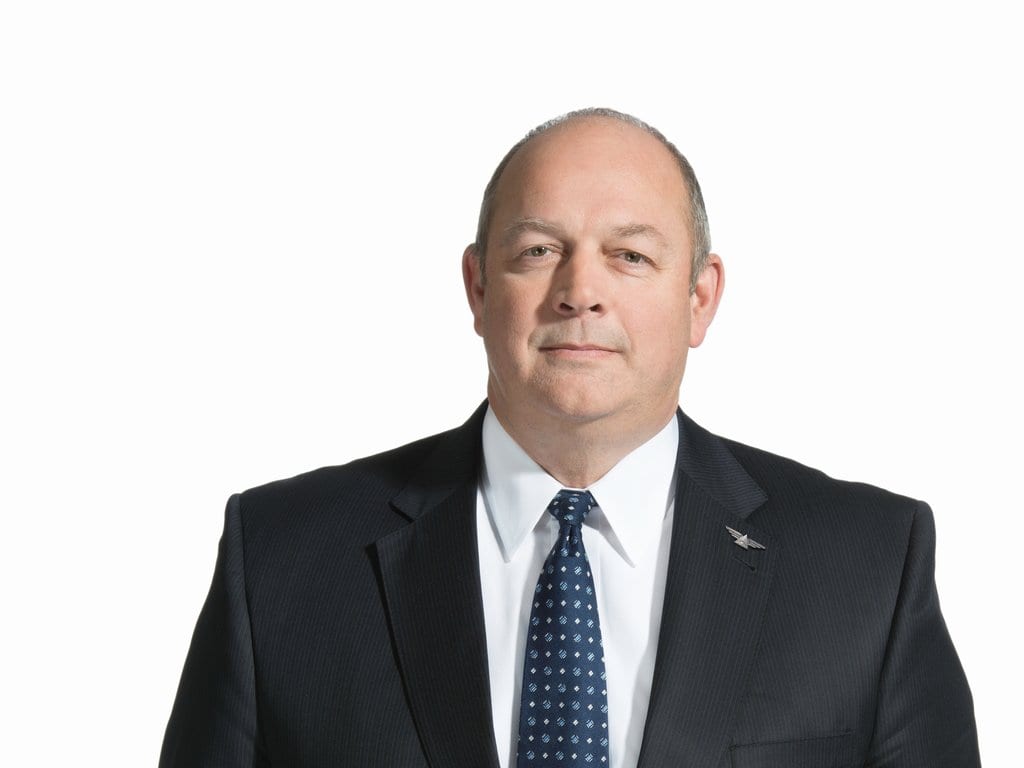
Stephen Dickson, President Trump’s nominee for FAA administrator. (Delta Air Lines)
Restoring trust in the FAA will be a big job for the agency’s next administrator, and Congress wants nominee Stephen Dickson to know it.
Appearing before the Senate’s Commerce Committee, which oversees aviation, President Trump’s pick to head the FAA was asked to assure lawmakers that he understood the magnitude of the two crashed Boeing 737 MAX jets and the loss of faith in the regulator that certified them.
“If you’re confirmed, the easiest thing to do will be nothing,” said Ted Cruz (R-Tx.) “Bureaucratic inertia is powerful and the instincts of any agency is to protect itself, protect the status quo and admit no wrongdoing.
“And so, what I’m asking you to do, if you’re confirmed, is be pissed off that 346 people died. That is not a small matter, 346 lives snuffed out, and at least the early evidence suggests that was preventable.”
Dickson resisted Connecticut Democrat Richard Blumenthal’s requests that he pledge to abolish the organization designation authorization (ODA) “to the extent that it has been done excessively” and refrained from placing any blame on the FAA or its acting administrator, Dan Elwell, whom he called a friend.
Instead, he repeated promises to work with the special committee and other assembled groups to review the processes involved in certifying the 737 MAX.
“I will never personally or professionally abdicate my responsibility and my devotion to safety leading the FAA,” Dickson said. “I would never certify an airplane that I would not put my own family on… Whatever corrective actions need to be taken or process changes need to be put in place, I can guarantee you those will be accomplished.”
He said, though, that “it’s hard to tell” what went wrong “without being inside the agency and privy to the data that the agency has.”
Dickson last year retired as senior vice president of flight operations at Delta Air Lines, following a 27-year career as an executive and pilot for the operator. He is also an Air Force Academy graduate and former Air Force officer, in which capacity he flew an F-15. In the 200os, he chaired the NextGen Mid-Term Implementation Task Force set up by the Radio Technical Commission for Aeronautics.
With a background in flight operations rather than aircraft certification or engineering, Dickson said that he doesn’t have specific insight into the ODA process, but he has found that other delegations in pilot certification have “made the FAA a much better regulator and it’s made the air carriers much safer and improved the quality of pilots that are being certified.”
On the aircraft front, he said it is likely the same.
“Even if you could throw enough resources at it, I think working with the private sector — with the proper controls and protocols — is going to let the regulator be a lot more effective and safer,” he said.
He also said, though, that he would be the “captain” of the FAA, he would be willing to ask tough questions, and the agency under him would not be captive to industry.
“There are a lot of good people [at the FAA] and they need leadership and they need to be supported,” Dickson said, adding that the installation of a permanent administrator would, in his view, help instill confidence in the organization.
One concern Dickson addressed, which he thinks could help aviation safety in the face of increased automation, is changes to pilot training to emphasize manual flying skills.
“I believe it’s one of the most important issues facing us today,” Dickson said at the hearing.
He said that while the increased automation in the “interface between pilot and machine” provides benefits in workload management, it also can create risks that need mitigation, pointing to pilot comfort with manual flying and situational awareness transitioning between various levels of automation.
“I think the focus on flight plan management rather than automation itself is a more holistic way to look at it because it encompasses not only the manual flying skills but also the various levels of automation that a pilot may encounter during a flight,” he said.
The mention of a holistic approach seemed to score Dickson some points with Ranking Member Maria Cantwell (D-Wash.), who said that the committee’s failure to look at the Space Shuttle Columbia explosion holistically slowed the investigation down as nobody thought that an O-ring could be the culprit.
To accomplish the goals of keeping pilot skills sharp, Dickson advocated different simulator training — perhaps introducing variability in flight simulation, compared to “what can be a bit of a canned scenario.”
Associations including the General Aviation Manufacturers Association (GAMA) and Aircraft Owners and Pilots Association (AOPA) have come out in support of Dickson’s nomination, citing his work with NextGen. Dickson has in recent years opposed the privatization of air traffic control in the U.S., a stance also opposed by AOPA.